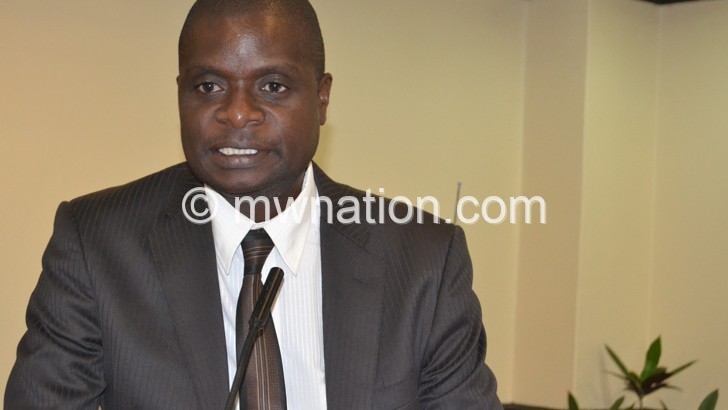Malawi, others lose out on aid
Switzerland has removed Malawi and 10 other developing countries from the list of beneficiaries of its development aid estimated at $11.43 billion (about K8.4 trillion) due to wastefulness and inefficient management of resources.
In its new Country Strategy for International Cooperation running from 2021 to 2024, Switzerland has listed Malawi alongside Bolivia, Haiti, Honduras, Cuba, Nicaragua, Swaziland, Lesotho, Mongolia, Pakistan and Azerbaijan as the dropped aid beneficiaries. This has since reduced the number of its aid beneficiaries from 46 to 35.

“The main focus will be on local job creation, the fight against climate change and the causes of irregular and forced migration as well as the commitment to peace and the rule of law,” reads a joint report by the Swiss ministries of Foreign Affairs and Economics.
Both departments said they want to “improve the effectiveness of development aid by refocusing thematic and geographical priorities” and by making better use of technologies.
Swiss Agency for Development and Cooperation figures show that Malawi, which is one of the least beneficiaries of the Swiss aid, started receiving financial aid from 1973. However, Malawi has not been a consistent beneficiary.
Between 2013 and now, for instance, Malawi has received about K3 billion from the Swiss government.
Bilateral relations between Bern and Lilongwe may not be close, but are historically significant in the context of Malawi’s political and economic developments.
When Malawi declared its independence in 1964, Switzerland—which had some of its traders settling in Malawi in the 1930s when it was the British Protectorate of Nyasaland—immediately recognised the new Republic of Malawi. Two years later in 1966, the two countries established diplomatic relations.
Later, the Swiss Agency for Development and Cooperation started supporting various programmes and projects in the country, particularly in the areas of food security and the fight against HIV and Aids.
While wishing to be more generous, the Swiss government said it also wants aid distribution to be more efficient following criticism of wasteful expense by the right-wing Swiss People’s Party.
In an interview on Tuesday, Ministry of Finance, Economic Planning and Development spokesperson Davis Sado said they are not aware of the development.
But Ben Kaluwa, an economics professor at Chancellor College—a constituent college of the University of Malawi—observed on Wednesday that the development spells doom for the economy and could frustrate efforts to improve the welfare of the people.
He said the Swiss aid withdrawal adds to United States of America’s strategy to revise downwards the quota of its aid to Africa, a development that could also affect Malawi.
Said Kaluwa: “It is mostly the non-governmental organisation activities that aim at improving the welfare of the people that gets affected by this. What is needed now is to ensure that Malawi maintains the remaining donors in any way possible.”
The development is coming at a time when a recent study revealed that Malawi is losing an estimated 7.5 percent of aid disbursed by the World Bank to leakage.
In its February 2020 paper titled Elite Capture of Foreign Aid: Evidence from Offshore Bank Accounts of the World Bank, Jørgen Juel Andersen, Niels Johannesen, and Bob Rijkers found that Malawi, alongside other 21 highly aid-dependent countries, account for around 10 percent of the aid disbursed by the World Bank.
In its Development Cooperation Strategy (DCS), Treasury aspires to reduce aid dependency by way of mobilising domestic resources to finance the country’s development needs.
However, in recent years, Treasury has found itself in a tight corner to shore up expenditure in the national budget by balancing with available resources in the wake of continued withdrawal of direct budgetary support and dwindling grants since Cashgate—the plunder of resources at Capital Hill through inflated invoices and payments for goods and services not rendered—was uncovered in September 2013.
Currently, most donors have changed their mode by preferring to re-channel their assistance to Malawi through non-governmental organisations (NGOs) in case of development budget.
Before revelations of Cashgate, donors used to put in up to 40 percent support in the Malawi Government’s recurrent budget and about 80 percent in the development budget.
The priority countries of Swiss development cooperation are among the poorest and structurally weakest in the world.
Switzerland allocates one part of its financial contributions to NGOs for specific projects and another part for the programmes of its ‘institutional partnerships’.
Its decision to support such organisations is based on an examination of the organisations’ competences and the relevance of their projects and programmes.
Based on the Federal Constitution and legislation, every four years the Federal Council and Parliament define the strategic approach of Switzerland’s international cooperation.





